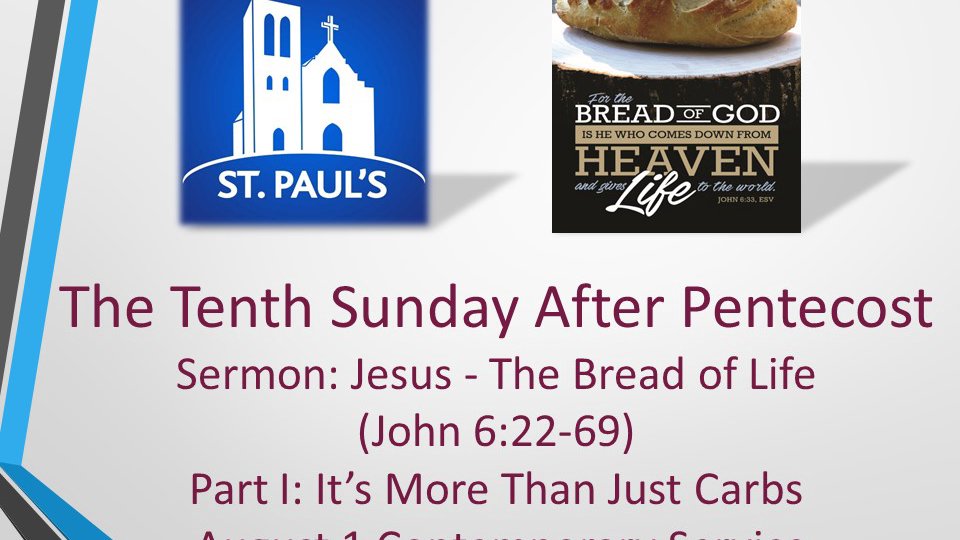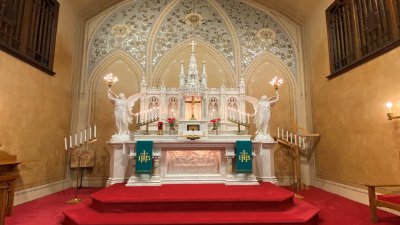Bread, in one form or another, is a diet staple in most every culture. Though today we can be overwhelmed at the grocery store with countless types and styles, even in its simplest form, bread continues to sustain stomachs in a variety of ways. Bread, or the simplest form of manna, is what the Lord would use to sustain His people in the wilderness, and the image of bread is what He would use to help people understand the greater gift He came to give in His own Son. Yet, more than sustaining a diet for this body and life, Jesus, the bread of life, has come to serve us salvation, sustain our souls, and feed us with His forgiveness.

08/01/21 Contemporary Service
Sermon Series: Jesus - The Bread of Life (John 6:22-69) Part I: It’s More Than Just Carbs John 6:
August 1, 2021 • Rev. Kenny Hsu • John 6:22–35
04/21/24 Traditional Service
April 21, 2024
One of the small but interesting features of many cathedral and monastery churches in Europe and other places is presence of misericords. A misericord is a small wooden shelf attached to the underside of a folding seat in a church, often in the choir area. Misericords physically supported people at worship during long periods of standing during extended prayer and other services when sitting was not permitted. The term “misericord” means “pity of the heart.” That word is part of the church phrase Misericordia Domini, a Latin term for describing the acts of mercy of God to His people. Jesus, the Good Shepherd, constantly and consistently shows acts of mercy to us as His people. His care comes straight from the heart!
04/21/24 Praise Service
April 21, 2024
One of the small but interesting features of many cathedral and monastery churches in Europe and other places is presence of misericords. A misericord is a small wooden shelf attached to the underside of a folding seat in a church, often in the choir area. Misericords physically supported people at worship during long periods of standing during extended prayer and other services when sitting was not permitted. The term “misericord” means “pity of the heart.” That word is part of the church phrase Misericordia Domini, a Latin term for describing the acts of mercy of God to His people. Jesus, the Good Shepherd, constantly and consistently shows acts of mercy to us as His people. His care comes straight from the heart!
04/14/24 Praise Service
April 14, 2024
AS WE GATHER “Amazing” is a commonly used word in the English that has a rich history. It came into common usage in the 14th century as a variant of the older root word “amasod,” which meant stupefied or confounded or overwhelmed with sudden surprise or wonder. The word “amazing” shows up several times in hymns that we sing—from describing the action of God in the birth of Jesus as “love amazing” (LSB 375:1) to bringing to our hearts and minds that in His suffering to pay the price of our sins, our Lord showed “amazing pity” (LSB 437:2). Two other hymns refer to the “amazing grace” of God (LSB 744:1; 558:2), and in another hymn, the author of the text rejoices that God “has done amazing things to me” (LSB 934:2). The season of Easter is a time for us to be truly amazed and filled with the praise of our amazing Lord!





